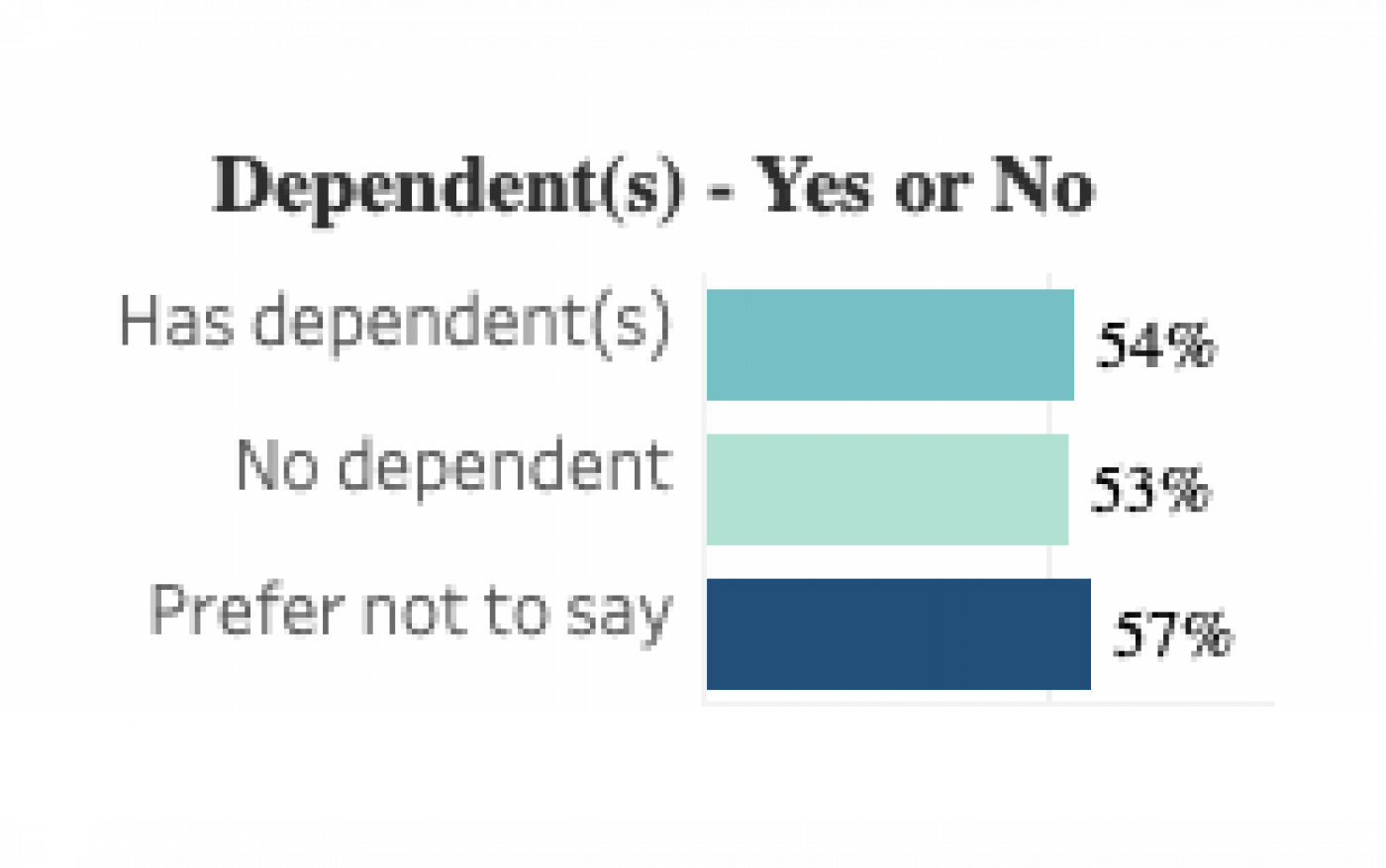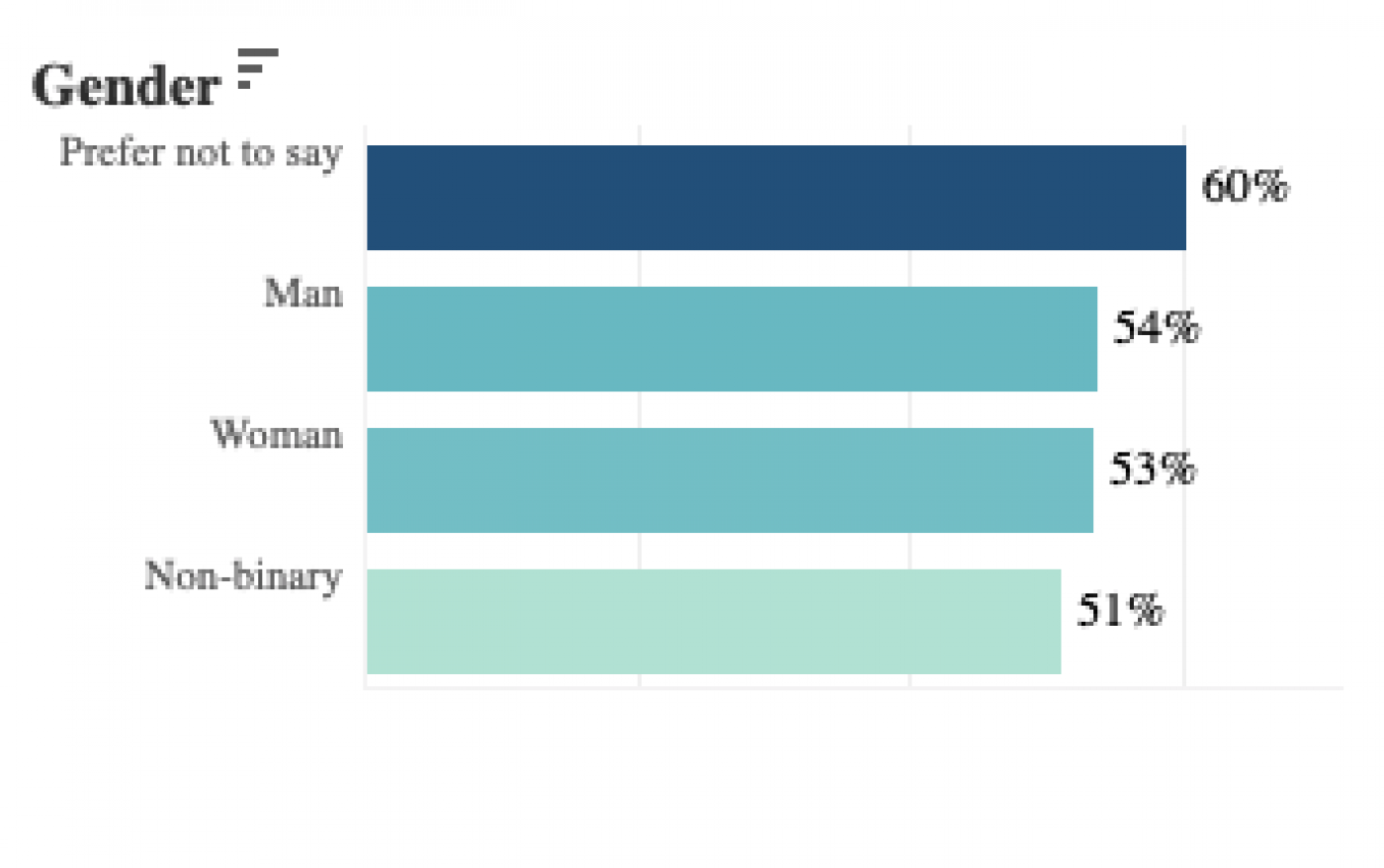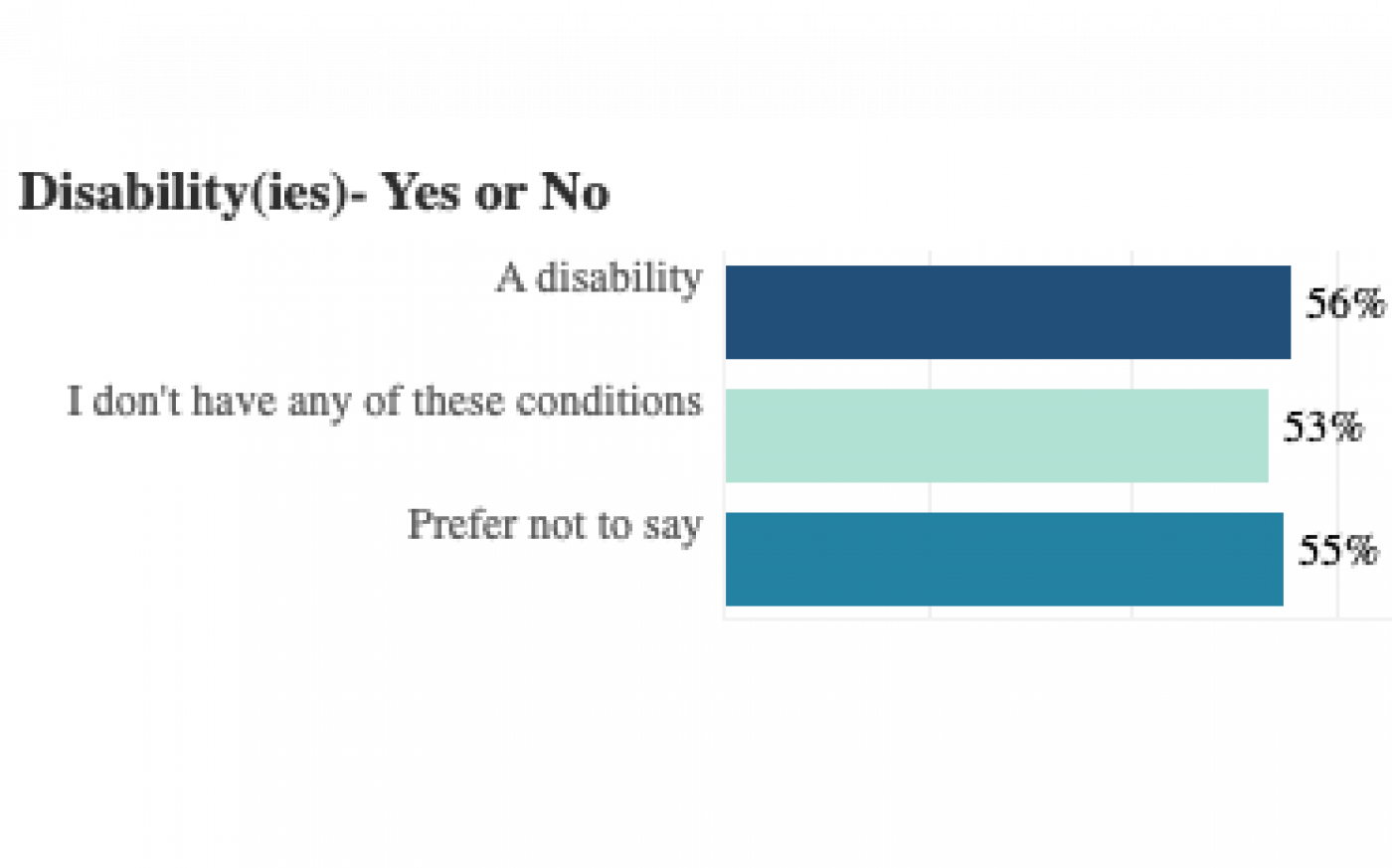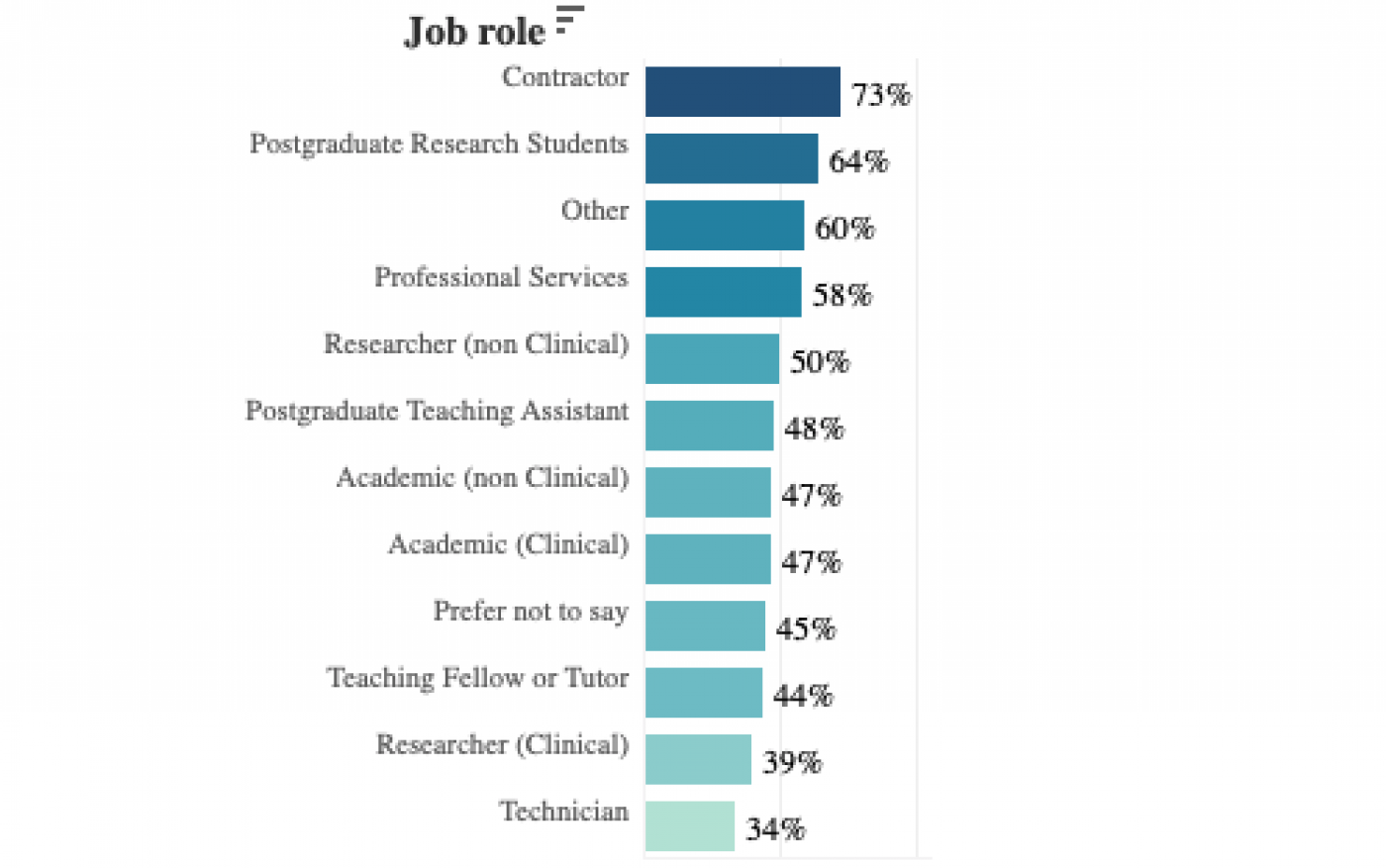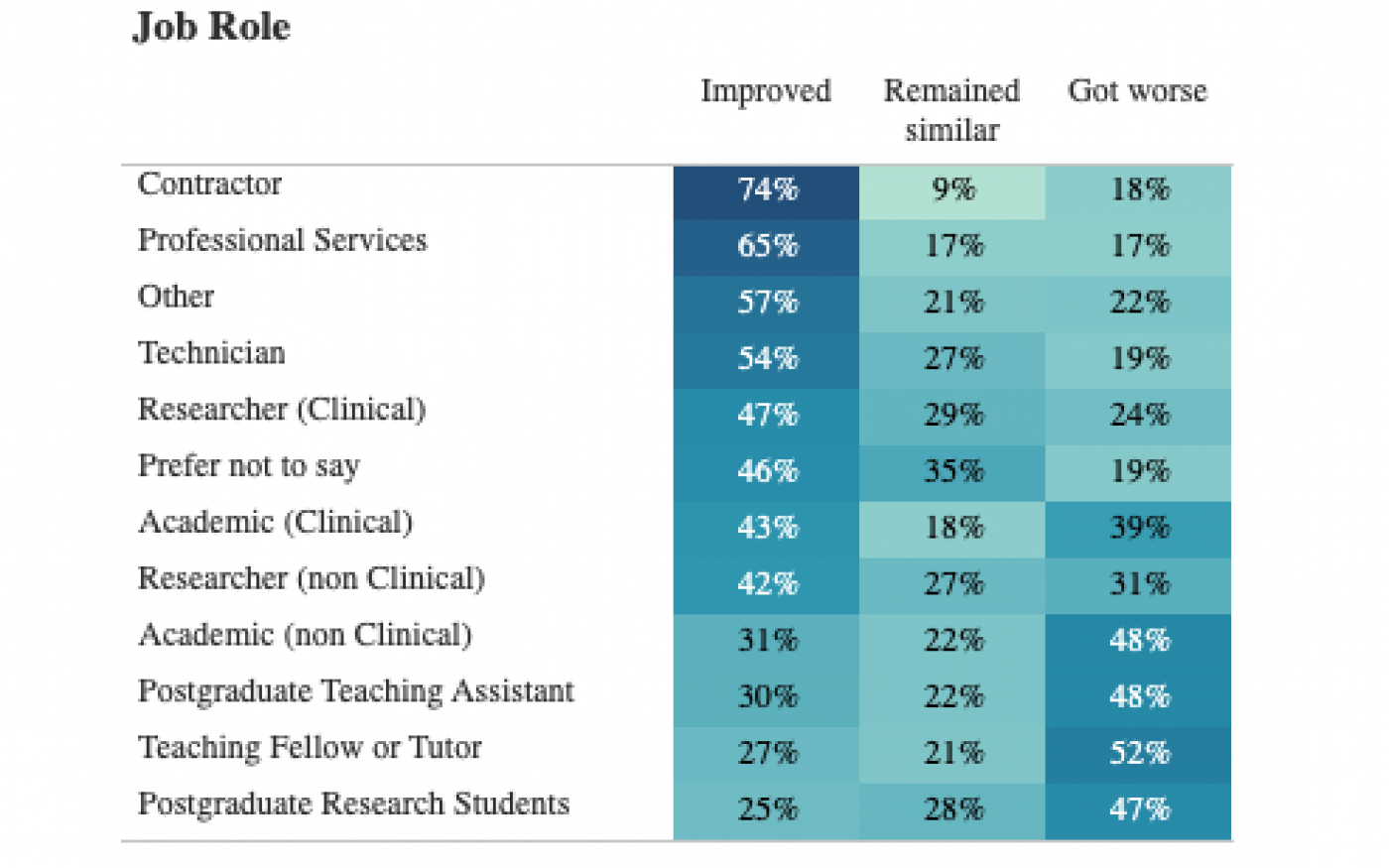Future of Work survey: what we learnt from your responses
21 May 2021
The survey was open to all UCL staff and captured a wide range of views for how the post-Covid future of work might look at UCL.
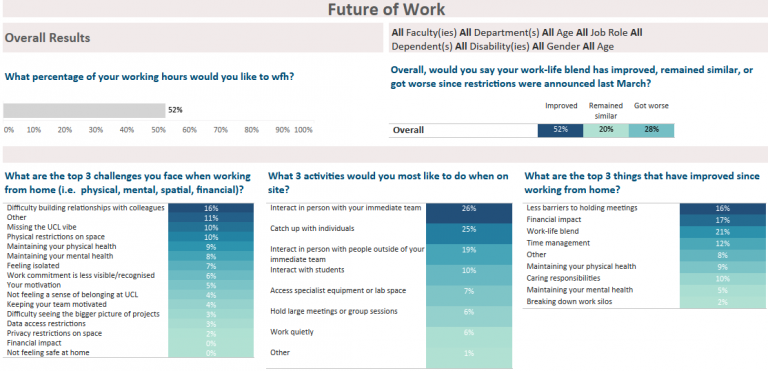
We would like to extend a huge thank you to the 34% of UCL staff who completed the Future of Work online survey.
It is clear from your responses that the lockdown has been challenging: the survey results show that people are missing the atmosphere on campus and have found it more difficult to build relationships with colleagues. Many staff have experienced practical issues with the physical restrictions of working from home with less-than-ideal furniture, space and IT equipment.
However, working remotely has also brought some positives for people and the way we work. Overall, colleagues reported that they have found it easier to manage their time and maintain a balanced work-life blend, including caring responsibilities. Many staff also said they benefit from commuting less often and from the positive financial impact of remote working.
Responses from academic, professional services and technical staff were broadly similar, with the exception of the proportion of their time each group would like to work from home. We were also able to identify some groups of staff whose responses varied around the impact of remote working on their work-life blend.
The survey results, together with institutional and local feedback, will allow us to use what we have learned from working remotely – the good and the bad – to improve how we work in the future.
Key insights
How colleagues have felt about lockdown
For most staff (52%) work-life blend has improved since we moved to predominantly working from home, while for less than a third of us it has got worse (28%).
Many colleagues are missing the social aspect of work the most and are looking forward to engaging with colleagues and students again.
Staff are worried about their mental and physical health, and some feel restricted by a lack of space to work comfortably at home.
Where there were differences between different staff groups
Teaching Fellows and Tutors have been most negatively impacted by the move to predominantly working remotely with over half of this group indicating that their work-life blend has declined since the start of the pandemic (compared to an average score of 28%).
Similarly, concerning levels of negative impact were also seen in the responses of our Teaching Assistants, and postgraduate students (48% and 47% respectively).
Contracted staff and those in professional services roles indicated that they would prefer to work from home notably more than the average (52%), indicating that they would prefer to work from home for 72% and 58% of their time respectively.
Technical staff indicated they wanted to work from home for the least amount of time indicating that on average, preferirng to spend only a third of their time working from home.
Where there weren’t any differences between different staff groups
Our results show the gender of the respondent had no effect on remote working preference. Men indicating an average preference of 52% of their time working from home while the figure for women was 53%.
For our disabled staff, there was no significant difference in responses around preferred time to be working from home, with staff preferring an average of 54% of the working week spent working from home (however, work-life blend had improved for 57% of disabled staff, more than the average of 52%.)
There was no significant difference in the preference around home working in staff with dependents compared to those without.
What changes people would like to see
Over half of suggestions for change made by respondents relate to improving UCL’s approach to flexible working and giving more choice to how often and when we are required to work on site.
Other themes raised by respondents included allowing staff to continue to join meetings remotely.
Most UCL staff would prefer not to go back to working on site fulltime, indicating a preference to continue working from home for 52% of their time on average.
 Close
Close


